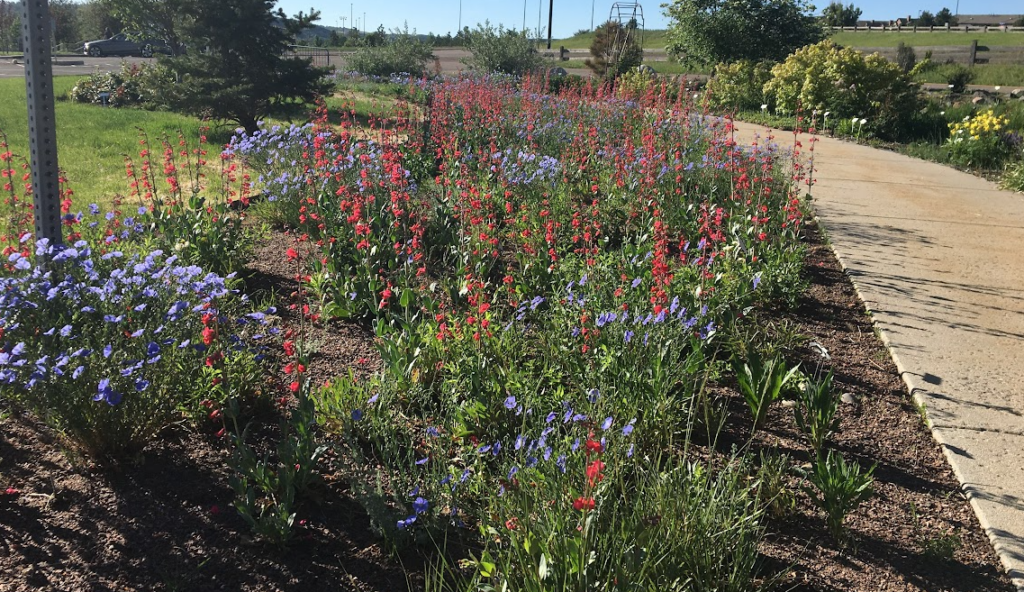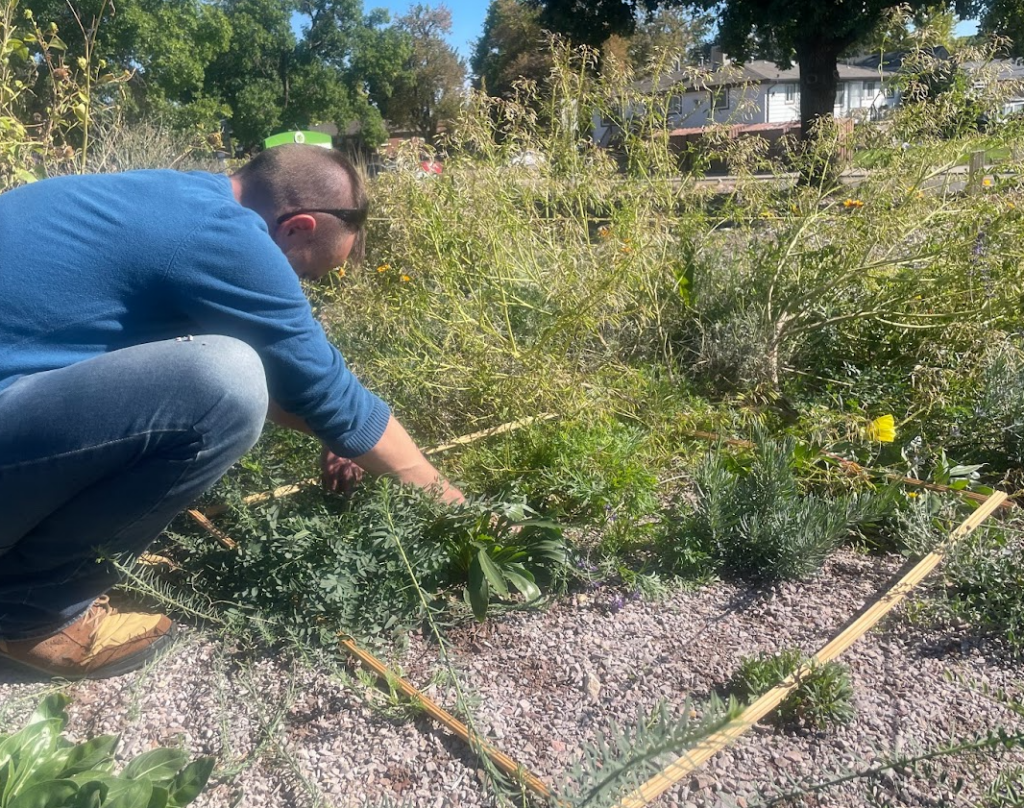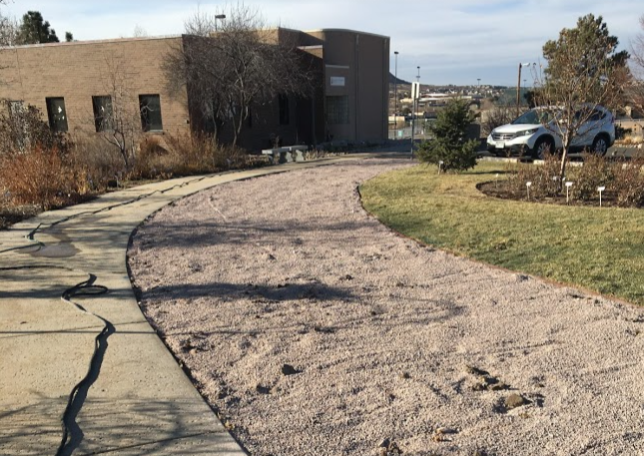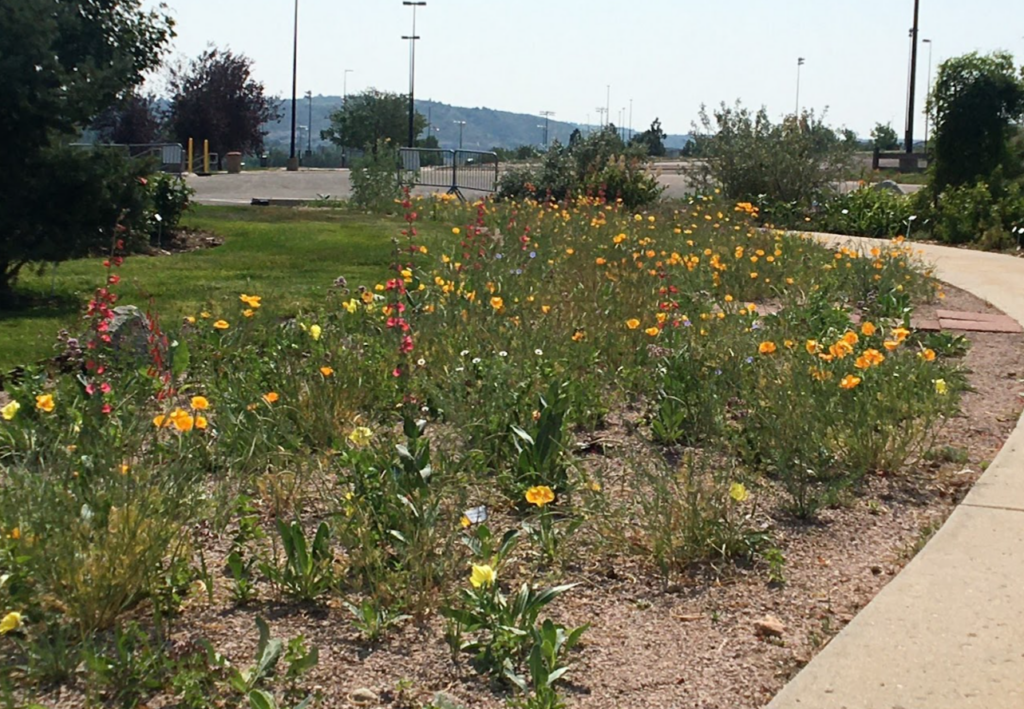
Background “Plant experiences,” whether in the wild or in gardens, are linked to human health in profound ways. Many studies have shown that exposure to urban greenspace lowers risk of mental illness, increases physical activity, and promotes overall wellbeing. At the same time, the rapid growth of urban areas in Colorado mean that this natural connection (most commonly made in urban greenspace by city dwellers) is at risk. Furthermore, outdated landscape practices tax our limited resources, especially water. CSU Extension in Douglas County has launched a project to investigate a regionally appropriate technique for the installation and maintenance of high-functioning urban green space without the need for intensive inputs. Our aim is to develop suites of plants that provide: 1) stable ecological community with long, heavy blooming season); 2) complete coverage of plants; and 3) less maintenance than turfgrass, the current “inexpensive, low-maintenance” landscape standard. Researchers at the University of Sheffield (UK) demonstrated the feasibility of seeding to install flower-rich, low-maintenance landscapes that elicit strong physical and mental health responses. These projects, though, were in climates with regular precipitation; practices leading to success in a seasonally dry climate like Colorado are less known. Two “seeded meadow” gardens have been installed at Denver Botanic Gardens since 2017; those projects have demonstrated the need for modifying the “Sheffield approach” for success, particularly in sowing medium and species selection for good performance under truly xeric conditions in the West. CSU Extension in Douglas County installed a pilot research plot in fall 2020. We are testing drought-tolerant plant species mixes for ease of establishment from seed and community stability over time, and public perceptions of these meadows. Sites Several test sites across the state have been identified and installed, including publicly accessible meadows at the county Extension office in Castle Rock, Depot Park in Englewood, CO. Data are being collected about community composition and stability over time; the first medium-term data about flowering and plant community stability will be available in late 2025. Principles and Methods Growing flowering meadows from seed was pioneered and championed by the University of Sheffield in the United Kingdom. While the plant communities anticipated to be successful in Colorado are quite different than those used in rainier places, the installation principles remain the same. They include: This project is funded in part by a grant from the Colorado Garden Foundation.






